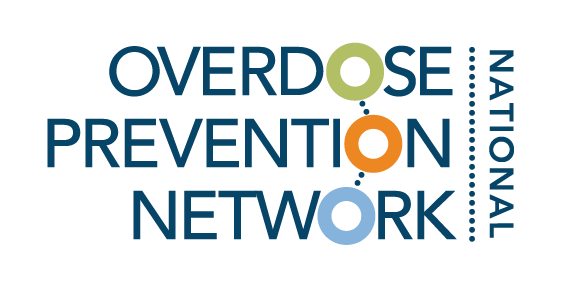
Resource Library
Toolkits, guides, and other resources vetted by experts in overdose prevention.
Filter by category and tags, or search by keyword (ex. COVID-19, harm reduction).
Example Resource: Trinity Opioid Safety Coalition Charter
The Trinity Overdose Safety Coalition have provided their updated coalition charter to serve as an example for other overdose prevention coalitions. The charter provides coalition members with a formal operating structure and information needed to better understand the coalition’s overall purpose.
Example Resource: El Dorado Cope Monthly Newsletter
The El Dorado Coalition for Overdose Prevention and Education recently introduced a newsletter for their coalition an community members that focuses on highlighting partner achievements, showcasing the positive work being done by their coalition members like law enforcement, treatment centers, and youth groups in the county. This newsletter can be an example to be an adopted for your overdose prevention coalition.
Example Resource: EL Dorado COPE Collaboration Agreement
Given the diversity of the El Dorado Coalition on Overdose Prevention and Education, developed a collaborative agreement. This is essential to ensure that every voice is heard and provides unity in their mission to save lives, despite differing opinions. This document can be used as an example to be adopted for your overdose prevention coalition.
Example Resource: El Dorado COPE Fact Sheet
The El Dorado Coalition for Overdose Prevention and Education (COPE) developed a comprehensive one-sheet fact sheet outlining the overdose crisis in El Dorado County, the coalition's history, achievements, and ways for new members to get involved. This fact sheet can be used as an example for your overdose prevention coalition and can serve as an effective tool for communication and engagement.
Example Resource: SLO Opioid Safety Coalition Organizational Structure Info Sheet
The SLO Opioid Safety Coalition created this organization structure info sheet for the community and members of their coalition. The info sheet provides a brief overview of the history and what the coalition is, the vision and mission statement, the coalition objectives and strategies, and the current membership. This resource can be used as an example to be adapted for your overdose prevention coalition.
Example Resource: Trinity Opioid Safety Coalition New Member Welcome Packet
The Trinity Opioid Safety Coalition created this new member welcome packet to provide the new coalition members with what the coalition is, the “why” behind the coalition’s efforts in a way to establish a common identity and purpose among members. This new member packet can be used an an example and be adapted for your overdose prevention coalition.
Example Resource: SLO Opioid Safety Coalition Member Commitment Form
The San Luis Obispo (SLO) County Opioid Safety Coalition created a coalition member commitment form to establish a partnership agreement and foster better collaboration among coalition members. This form can be used an an example and be adapted for your overdose prevention coalition.
Fact Sheet: The Impact of the Overdose Crisis on Latinx Communities in the United States
Drug overdoses have affected all communities across the United States. Yet there are notable racial and ethnic disparities that have emerged over the past 25 years, even though people of all races and ethnicities use drugs at similar rates. Racism, lack of access to treatment and services, targeted drug enforcement, and stigma are some of the most common factors contributing to these tragic losses in our communities. DPA has developed three new fact sheets that describe overdose death trends among Black, Latinx, and Native American communities. They also provide policy recommendations and strategies for how our elected officials can save lives.
Fact Sheet: The Impact of the Overdose Crisis on Black Communities in the United States
Drug overdoses have affected all communities across the United States. Yet there are notable racial and ethnic disparities that have emerged over the past 25 years, even though people of all races and ethnicities use drugs at similar rates. Racism, lack of access to treatment and services, targeted drug enforcement, and stigma are some of the most common factors contributing to these tragic losses in our communities. DPA has developed three new fact sheets that describe overdose death trends among Black, Latinx, and Native American communities. They also provide policy recommendations and strategies for how our elected officials can save lives.
Fact Sheet: The Impact of the Overdose Crisis on Native American Communities in the United States
Drug overdoses have affected all communities across the United States. Yet there are notable racial and ethnic disparities that have emerged over the past 25 years, even though people of all races and ethnicities use drugs at similar rates. Racism, lack of access to treatment and services, targeted drug enforcement, and stigma are some of the most common factors contributing to these tragic losses in our communities. DPA has developed three new fact sheets that describe overdose death trends among Black, Latinx, and Native American communities. They also provide policy recommendations and strategies for how our elected officials can save lives.
Fentanyl and Public Drug Use: A Doctor Gives the Facts
The Drug Policy Alliance’s newest video resource is focused on dispelling myths surrounding fentanyl and features, Dr. Goodman-Meza an expert on the intersection of infectious diseases and addiction. He knows better than most how crucial it is for us to approach drug use and the overdose crisis with solutions based in health and science.
Preventing Overdose and Reducing Drug-Related Harm Policy and Implementation Guides for State and Local Change
ChangeLab Solutions has developed guides that offer a range of evidence-based policy strategies and a roadmap to policy implementation that can advance equity and prioritize care over punishment for people who use drugs. The strategies are intended to support state and local decision makers, government agency staff, public health practitioners, and community members in considering policies to prevent overdose and reduce other drug-related harm in their communities.
Overview of Recent Substance Use Policy and Legislation in California 2024
The following document summarizes recent policies in California aimed at overdose prevention, substance use disorders (SUD), and mental health based on a presentation by Riana King, Principal Consultant with the California Assembly Committee on Health, during the Summer 2024 COPN Convening. The legislative policies are categorized into four main areas: Funding Capacity, Treatment & Access, Harm Reduction & Prevention, and Oversight & Accountability.
ASTHO’s Public Health Legal Mapping Center
Explore ASTHO’s Public Health Legal Mapping Center, which utilizes interactive tools to analyze state laws on overdose prevention and public health infrastructure, tracking changes and trends over time.
The New Drug Talk: Connect to Protect Flyer
A flyer for the The New Drug Talk Connect to Protect on how to talk to kids about fentanyl. It is a two-sided flyer, with one side in English and the other Spanish.
The New Drug Talk: Connect to Protect Toolkit
This toolkit provides you with content to amplify the New Drug Talk message and includes: resources to share on social media, messaging guidelines, and draft email outreach.
COPN Accelerator 4.0 Case Studies: Health Equity Strategies in Overdose Prevention
What steps can communities take to incorporate health equity in overdose prevention? The following summary provides concrete examples of thoughtful approaches to applying health equity in overdose prevention at the local level to address rising rates of overdose. Case studies were drawn from overdose prevention coalitions participating in the California Overdose Prevention Network (COPN) Accelerator 4.0 Program. These can serve as models for other coalitions and organizations across the country.
Naloxone Pocket Card Example
OD Free Marin provided their naloxone instructional pocket card PDF for other individuals to use as an example to adapt for local use.
Coalition Building II: Maintaining a Coalition
University of Kansas has created curriculm on the importance of maintenance within a coalition. This covers what needs to be maintained, and how to maintain your work successfully. The curriculum explores some alternatives to simple maintenance -- coalition growth, for example, or changing direction, and even ending. But the key point about maintenance is that it won't happen all by itself. It takes effort -- conscious, planned, and ongoing.
2023 State of the States: Legislative Roadmap for Reducing Overdose Deaths and Increasing Access to Treatment (the Roadmap)
The Legislative Analysis and Public Policy Association developed the 2023 State of the State, which guides state leaders on the most effective approaches to addressing the opioid and other drug epidemic by identifying 10 evidence-based policy approaches to reduce overdoses. Each of the 10 strategies outlined in the Roadmap points to a specific type of policy that states can implement to reduce overdose deaths and increase access to substance use treatment.







